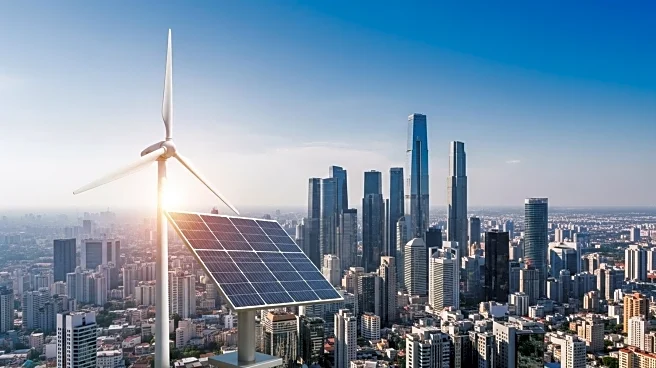What's Happening?
A recent study has examined the uncertainties involved in Puerto Rico's energy transition, focusing on three scenarios: Business as Usual (BAU), Fully Renewable (FR), and Fully Decarbonized (FD). The study uses a three-stage framework to analyze cost-optimal system designs and their performance under various uncertainties. The scenarios aim to meet energy demands by 2050, with the FR and FD scenarios aligning with Puerto Rico's renewable energy goals. The study highlights the role of declining renewable technology costs in driving the transition, even without regulatory mandates. It also explores the impact of hurricanes and organizational inefficiencies on system costs, emphasizing the need for resilient infrastructure.
Why It's Important?
The study's findings are significant for policymakers and stakeholders in the energy sector, as they underscore the complexities of transitioning to cleaner energy sources. The analysis reveals that while market forces favor renewables, uncertainties such as hurricane frequency and organizational inefficiencies pose challenges. These factors can significantly affect operational and damage restoration costs, impacting the overall feasibility and cost-effectiveness of the transition. Understanding these uncertainties is crucial for developing strategies that enhance grid resilience and ensure reliable energy supply, particularly in hurricane-prone regions like Puerto Rico.
What's Next?
The study suggests that planners should focus on key uncertainties, such as changes in hurricane frequency and organizational inefficiencies, to improve decision-making processes. By better understanding and modeling these factors, stakeholders can develop more effective strategies for energy transition. The findings also highlight the need for policies that enhance grid resilience, particularly through retrofitting distribution lines to prevent prolonged blackouts. As Puerto Rico moves towards its renewable energy targets, ongoing research and adaptation to emerging challenges will be essential.
Beyond the Headlines
The study's emphasis on organizational inefficiencies as a major source of uncertainty is noteworthy, as it highlights systemic challenges that can affect energy transition efforts. These inefficiencies, including leadership deficiencies and poor planning, can exacerbate the impact of natural disasters on energy infrastructure. Additionally, the study calls attention to the broader implications of climate change, urging planners to consider a wide range of potential variations in hurricane frequency and intensity. This approach can lead to more resilient energy systems that are better equipped to handle future uncertainties.










